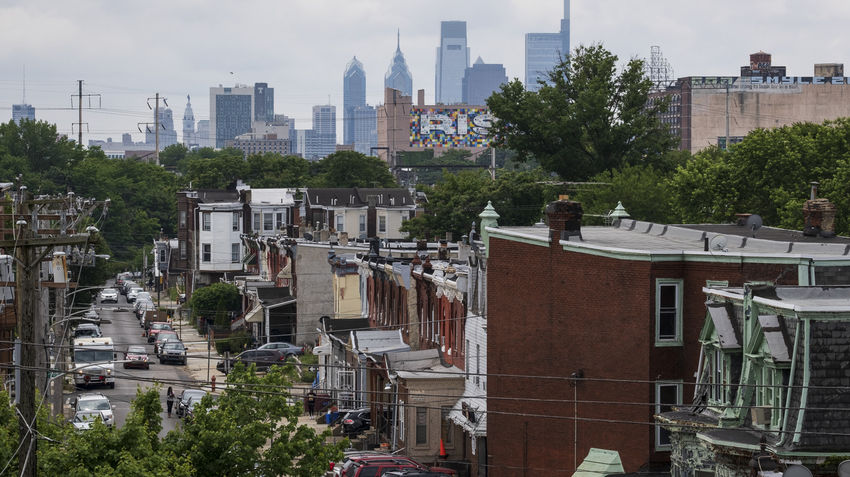
Temple University has committed $1 million to a new initiative that will deliver healthcare services to underserved immigrant populations in North Philadelphia. It is envisioned that the three-year program, to be run jointly by Temple's College of Public Health and Temple's School of Pharmacy, will offer an integrated behavioral health model of primary care, including pharmacy services, nutrition counseling, social services and other wellness supports to community residents.
In addition to addressing health disparities in immigrant and vulnerable populations by providing direct care, the program will support Temple's training of future healthcare professionals and promote interdisciplinary practice by teaming students across pharmacy, nursing and other healthcare fields. The initiative also will improve the ability of the university's faculty and students to include underrepresented minorities in research efforts aimed at understanding and conquering health disparities.
“We are empowering passionate leaders to transform the future of immigrant health and responding to a call from Temple's president, Dr. Jason Wingard, to support our surrounding communities. Our project with the College of Public Health shows that we remain true to Temple’s commitment to support underserved communities—a mission that dates back to the university's founding by Russell Conwell in 1884,” said Jayanth Panyam, dean and professor at the School of Pharmacy.
"By bringing together students and faculty from pharmacy, nursing, social work, nutrition, rehabilitation sciences, public health and many other health professions, we will be able to work in a holistic manner to promote health and well-being,” said Jennifer Ibrahim, interim dean and associate professor at the College of Public Health. “This is what Temple does. We are solutions-oriented and we’re community-engaged. And we know that we can do things better when we work together.”
Temple University and Temple University Hospital already provide vital healthcare services to the economically challenged patient population in North Philadelphia, where 45% of households are below the federal poverty level. Health disparities in this part of the city are severe; for example, the mortality rate from heart disease is 65% higher than the national average. Up to 12% of North Philadelphia residents are first-generation immigrants who may face elevated social, financial and structural challenges in accessing health care, due to factors such as limited English proficiency, lack of health insurance, ineffective patient-clinician communication, and cultural differences.
The initiative expanding healthcare offerings to the immigrant community will be co-led by Susan VonNessen-Scanlin, associate dean for clinical affairs and interprofessional education at CPH, and Tina Tran, assistant professor of pharmacy practice at TUSP. VonNessen-Scanlin, a trained nurse practitioner, has broad healthcare management experience, including having served as CEO of Rutgers Community Health Center. Tran has extensive clinical, research and implementation experience, having successfully launched multiple community-based care models on HIV and non-communicable diseases, focusing on structural, financial, and social determinants of health.
Tran collaborates on other immigrant health initiatives led by Temple faculty, including the ongoing “Viet-Capacity” pharmacy continuing education program. The program trains Vietnamese-speaking pharmacists to deliver stroke education to Vietnamese-speaking patients in a linguistically and culturally appropriate manner. She also co-led a School of Pharmacy effort providing medications, vaccination and medical resources to Afghani refugees arriving in Philadelphia. Tran said: “I am humbled that our team have had the opportunity to weave our personal upbringing and stories, our professional expertise, and our interprofessional relationships into a meaningful vision for a community-engaged initiative to support the underserved immigrant populations in North Philadelphia.
VonNessen-Scanlin has led the college’s COVID vaccination collaborative with the community, which post-pandemic has evolved into the delivery of social services, educational outreach activities, health navigation, physical therapy, health screening and diabetes prevention at the Vaux Community Health Center in the historic former Roberts Vaux Junior High School building (now Vaux Big Picture High School) in the city's Sharswood/Blumberg neighborhood. She describes the aim in serving immigrant communities as providing “culturally competent care.”
“That's really providing care through the lens of cultural humility, meeting people where they are to reduce barriers and health inequities," she explained. “We’re envisioning integrated behavioral health, which cares for both the physical and psychological wellbeing of an individual. We will offer services that go beyond just doing a health assessment and writing a prescription.”
